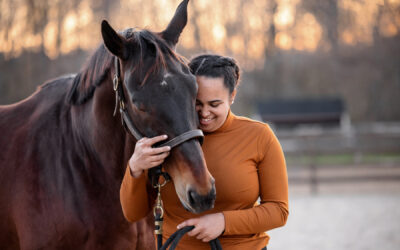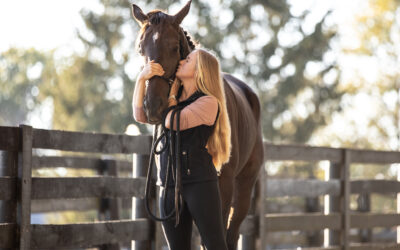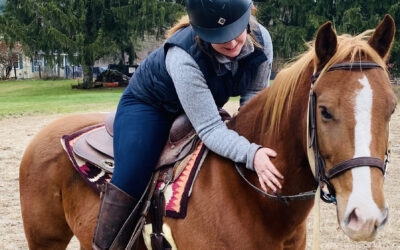News
The Right Horse Initiative Awards Grant to Horses Without Humans
KATONAH, NY – Horses Without Humans, a 501(c)3 nonprofit equine adoption organization based in Bell, Florida, has been awarded a grant to expand their capacity for rehabilitating, retraining and placing horses in adoptive homes. The $200,000 grant will empower Horses Without Humans to expand from transitioning and adopting out 20 horses annually to an average of 100 horses annually.
Horses Without Humans’ mission is “to be the change we wish to see in the world by providing transitional shelter, companionship, rehabilitation and training to at-risk horses with the purpose of placing them into suitable homes. We will accomplish this one horse at a time, and one after another.” Founded in 2017 by renowned dressage trainer Yvonne Barteau, Horses Without Humans uniquely bridges the equine welfare community with the world of elite dressage and performance horses. Barteau’s long list of accolades includes earning her United States Dressage Federation Gold, Silver and Bronze medals as well as her Gold, Silver and Bronze freestyle bars while also training for and performing in the popular Arabian Nights Dinner Theater productions.
“I have seen firsthand the talented and valuable horses that are at-risk of inhumane treatment every day, and decided it was time to take action,” stated Barteau. “My whole career has centered on horses and now it’s time to give back. At Horses Without Humans, we draw on the strength, skills and connections our team has built over our lifelong careers to benefit horses in transition.” The process of placing horses in transition includes professional assessment, rehabilitation, veterinary care, training and companionship. Horses Without Humans provides basic groundwork and the foundations of dressage for all equines in their care, thereby giving them an exceptional opportunity to move into any future discipline. Grant funds will enable Horses Without Humans to provide these services to an average of 100 horses per year, up from their starting capacity of serving 20 horses annually.
As a partner in The Right Horse Initiative, Horses Without Humans is proud to support a national movement reframing the conversation about equine adoption. In addition to providing critically needed care for horses in transition, Horses Without Humans is focusing on shattering the stigma around adoptable horses through professional marketing and positive promotion. “Yvonne is a powerful voice in a part of the industry that typically has missed out on the potential of these horses,” said Christy Counts, President of The Right Horse Initiative. “Trainers are uniquely positioned to help horses in transition and we hope more are inspired to support positive solutions for the issues that we all face in the horse industry.”
To learn more about Horses Without Humans, visit www.horseswithouthumans.org. To view currently adoptable horses from Horses Without Humans, visit www.myrighthorse.org.
About The Right Horse
The Right Horse Initiative is a collective of industry professionals and equine welfare advocates working together to improve the lives of horses in transition through a dialogue of kindness and respect. Through collaboration with over 50 industry and adoption partners, The Right Horse is able to innovate new and better adoption standards and practices. Together, the goal is to shatter the stigma and reframe the conversation around equine adoption in order to massively increase horse adoption in the United States. To learn more, visit www.therighthorse.org.
About Horses Without Humans
Horses without Humans (501c3) is dedicated to providing transitional horses a valid chance at an adoptive home. Located in Bell Florida at the 126-acre Rock Bluff Ranch, HWH is a training and education center for both horses…and their riders. With the help of The Right Horse Initiative Horses, without Humans has been able to expand on their ability to house and train their adoptable equines. The primary focus of Horses without Humans is to develop an intake, assessment, evaluation and training model which can be taught to others with hopes of improving equine welfare in the United States both short and long term.


